No products in the cart.
Environmental Issues
Environmental Issues From the Roof Top
The grease produced from commercial kitchen and restaurant cooking areas travels up the ductwork (although a large portion of it is caught in the hood filters), pulled up to the roof by the exhaust fan- the grease then runs into a greasetrap installed next to the exhaust fan, but a lot of the grease ends up just on the roof. Professional hood cleaners, at each service, will go up to the roof, open the exhaust fan, and clean the fan and the surrounding area, which usually is full of grease.
Until now, hood cleaners have had to direct all of the chemical laden wastewater, as well as the grease, to the gutter. The gutter, of course, is connected to the downspout on the ground, so the gallons of wastewater and pounds of grease, from each and every cleaning at each and every restaurant, empties right onto the ground. As soon as the next rain, that grease and waste will flow either right into the nearest storm drain, or will run directly into a near-by creek, stream or river. Both ways eventually end up polluting our waterways, over and over, as all commercial kitchen and restaurant hood cleanings are required on an on-going basis.
The A1 Gutter Box is an addition to our line of products for cleaning hood filters- it’s a simple system that will have a big impact on this current pollution source from the roofs of restaurants. Hood cleaners now have an option- they don’t have to send the grease waste and chemicals down the gutter to land on the ground. It can all be easily captured and disposed of properly with the A1 Gutter Box. Actually, during any rooftop type work that requires using water, all wastewater is supposed to be captured, not allowed to go down the downspout and onto the ground, same as the requirement for exhaust fan hood cleanings.
Cooking grease next to and on a rooftop exhaust fan of a restaurant. When the hood system is cleaned, this grease gets mixed with the chemical wastewater, then is directed down the downspout, only to empty onto the ground or lot. This waste is required to be captured, we now have a solution for that.
This is our A1 Gutter Box- when we clean rooftop exhaust fans for a restaurant, our Gutter Box is used, it captures the grease and waste that’s directed down the downspout, not allowing ANY of the waste to stay on the ground. It’s pumped back into the kitchen sink where it’s highly filtered through our Sink Filter Box and can be disposed of properly.

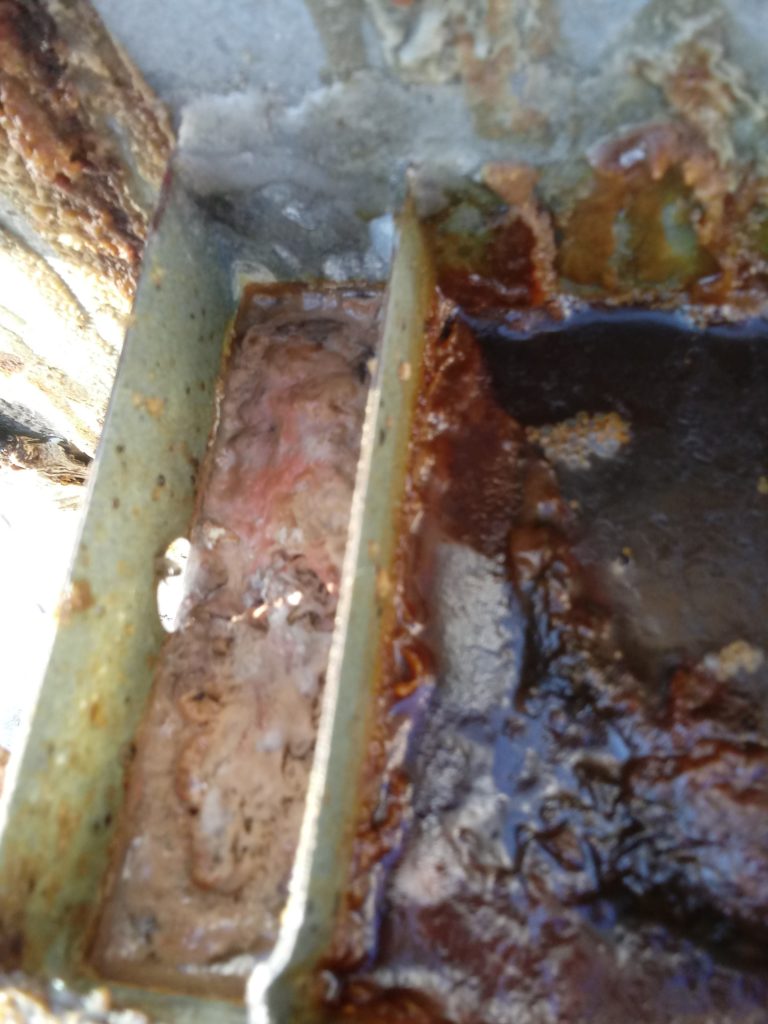
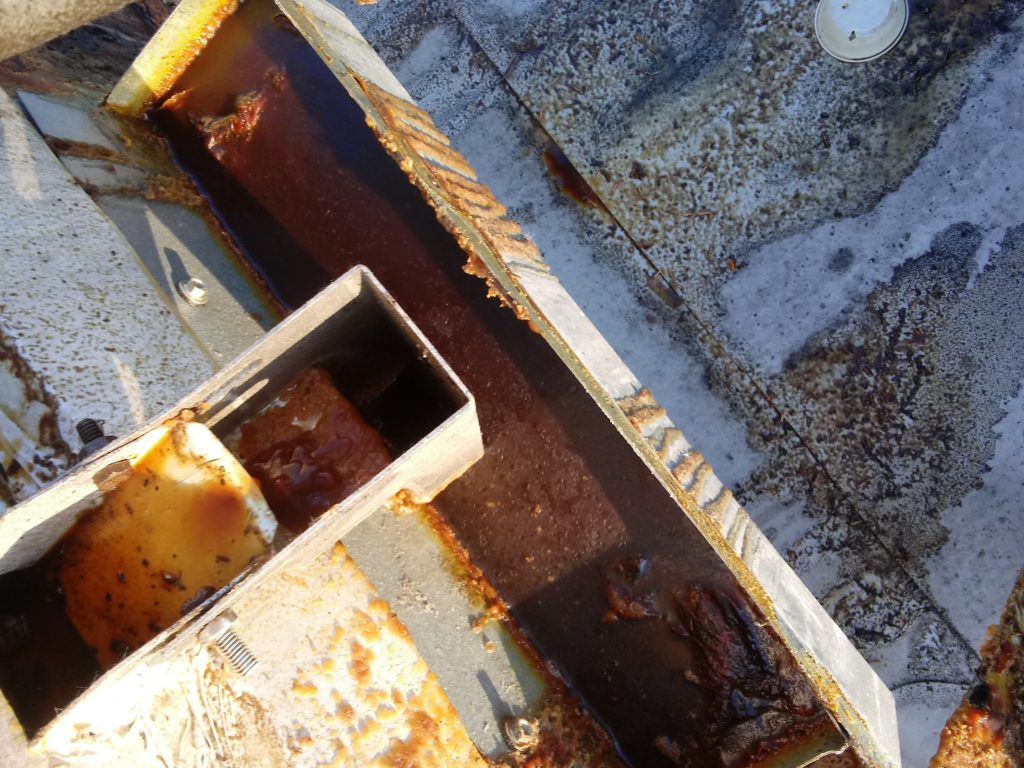
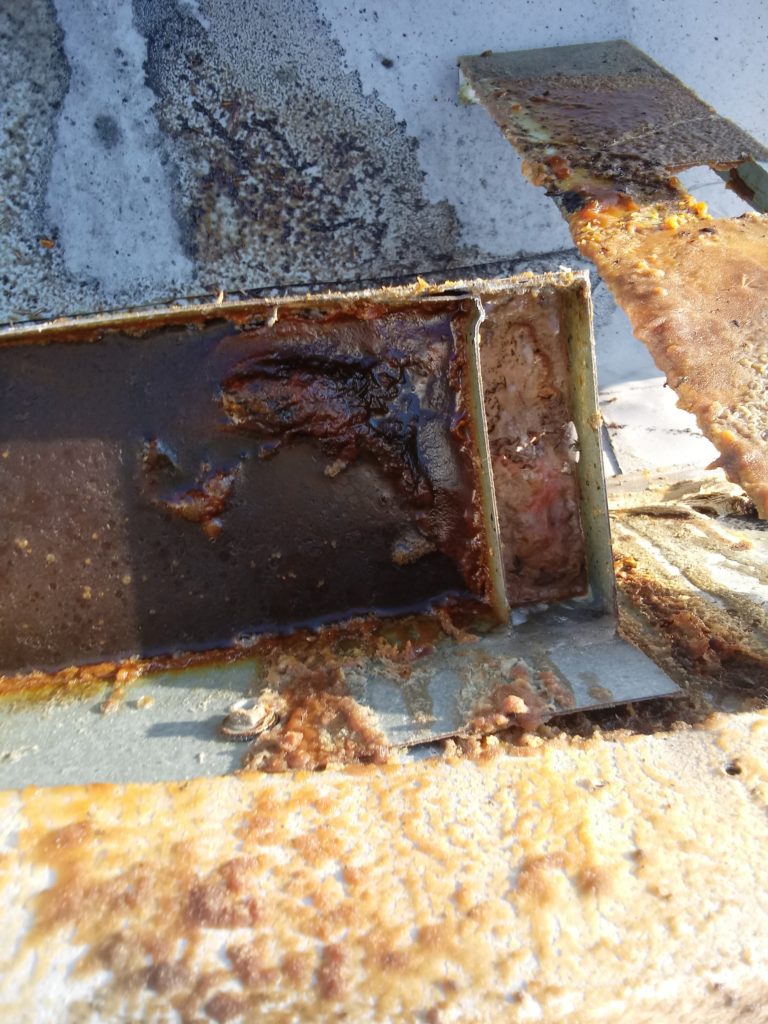
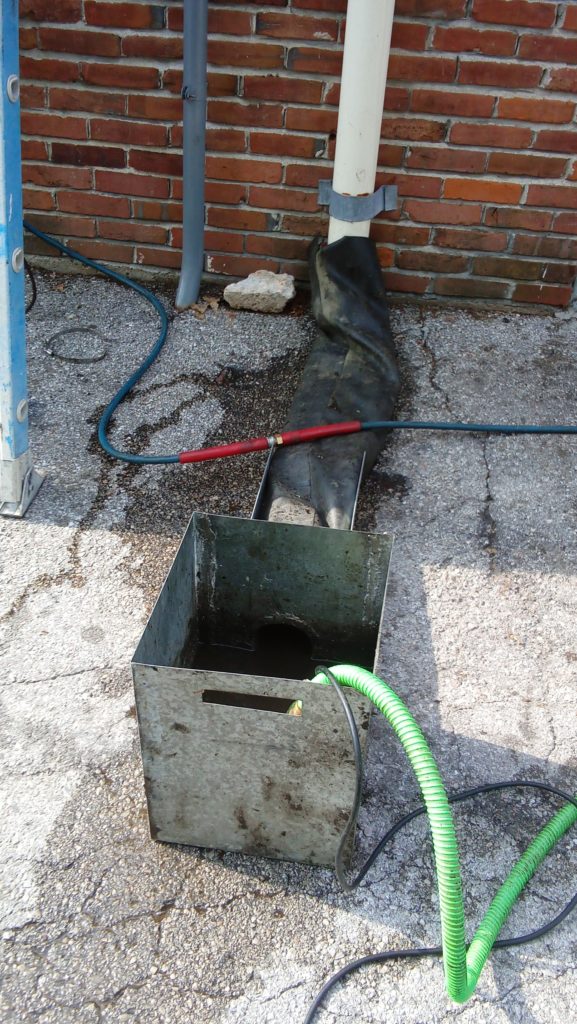
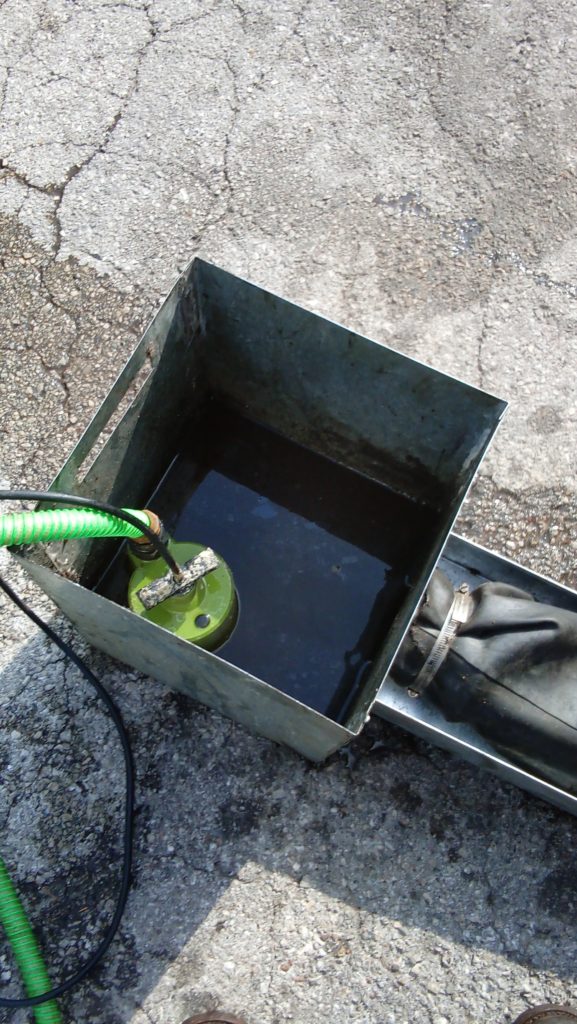
I’m trying to get away from spraying filter outside and I want to get a proper set up where I can spray and soak filter in my garage I’m interested in the portable one too please reach out to me so I can learn more about your products I could also find some restaurants and sell them for you also
Hello there! We were glad to hear from you and would like to talk with you again about helping you get the proper set up, to where you can stop cleaning your hood filters outside, being able to soak and spray them in your garage or while you’re on a hood cleaning job (portable unit). As you know, our filter boxes allow you to easily clean the filters AND will capture all the grease and waste, leaving nothing on the ground, stopping all that grease and chemicals from polluting the ground and then making it’s way into the waterways. We have other products that might help you also-like our Gutter box- it operates the same as the filter box BUT it captures the grease and waste produced from cleaning the exhaust fan on the roof when you’re cleaning a restaurant hood- it’s made to attach to the downspout, captures the waste pushed down from the roof during cleaning, and then is pumped back inside into the sink filter box, where the majority of the grease is filtered and captured, again, nothing hits the ground, keeping your clients’ parking areas nice and clean and again, stopping the pollution that’s occurring now every time a restaurant has their hoods cleaned. Anyway, we’d love for you to call us-we’ve sold and installed some indoor filter boxes here locally and they absolutely love them-saying they’ll never clean and maintain their hood filters any other way from now on. We’d like to talk with you about selling some in your area too-the more filter boxes being used by restaurants AND hood cleaners, the better for our environment and for the restaurants. Give us a call back, thanks!